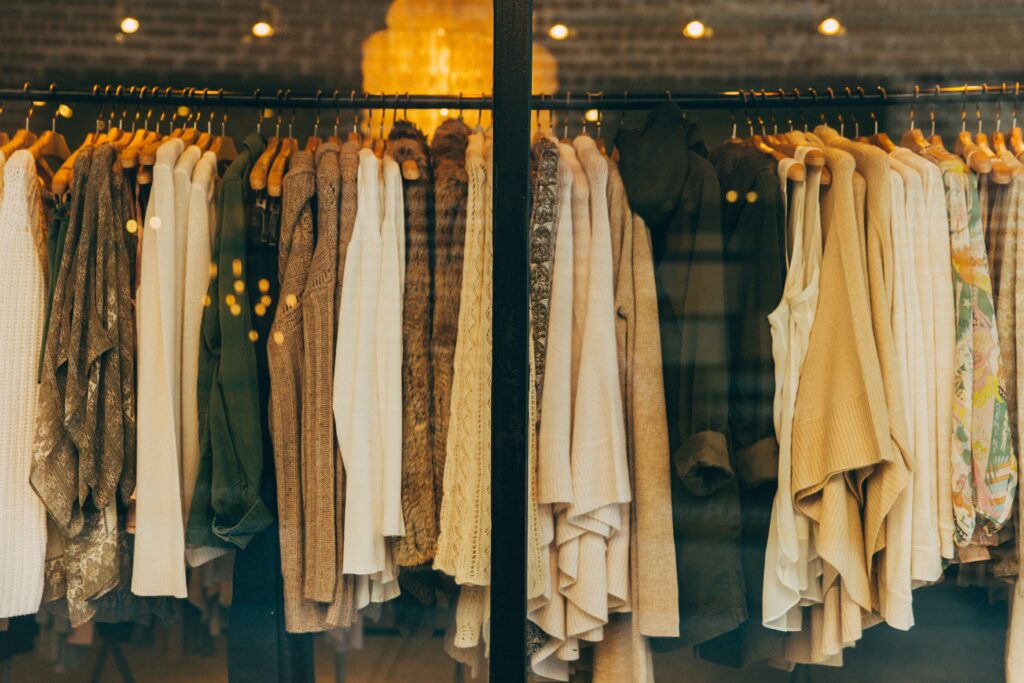A point-of-sale system is a crucial part for retail stores. There are many factors to consider when deciding what point-of-sale system to purchase such as key features, hardware, software, your budget, and many others. Keep on reading to learn the important of a good point-of-sale system for your business, a retail store!

Why do Retail Stores need POS systems?
Choosing the appropriate point-of-sale (POS) system is essential when it comes to managing your retail enterprise. Retail stores need a POS system for several reasons:
- Record-keeping: A POS system allows retail stores to record every transaction, which provides valuable data such as sales volume, popular products, and peak hours. This information can be used to make informed business decisions.
- Inventory management: A POS system tracks inventory in real-time, allowing store owners to know the status of their inventory at any given time. This helps in reordering products at the right time.
- Efficient transactions: A POS system speeds up the checkout process by allowing cashiers to scan barcodes or input product codes, which reduces the likelihood of errors and streamlines the payment process.
- Accounting: A POS system allows owners to easily generate financial reports and track revenue, expenses, and profits.
- Enhanced customer experience: A POS system can integrate with loyalty programs, accept multiple payment methods, and provide real-time information to customers. This enhances the customer experience and increases customer satisfaction.
Overall, a POS system improves the efficiency of retail stores and provides valuable data that can be used to make informed business decisions.
What management features should I look for in a retail store POS system?
When selecting a POS system for your retail store, you should look for the following features:
- Inventory management: A good POS system should include inventory management capabilities that allow you to track your product availability in real-time. This feature can help you keep track of stock, avoid stockouts, and optimize your inventory levels.
- Customer management tools: A POS system should provide you with the ability to manage customer information and preferences, including contact details, purchase history, loyalty programs, and more. This feature can help you personalize your customer interactions, build customer loyalty, and improve your marketing efforts.
- Employee management tools: A POS system should enable you to manage employee schedules, track time and attendance, and monitor performance. This feature can help you optimize staff utilization, reduce labor costs, and ensure high-quality customer service.
- Mobile accessibility for on-the-go management: A good POS system should offer mobile accessibility, allowing you to manage your business on the go. This feature can give you the flexibility to manage your store remotely, check inventory levels, and process orders from your smartphone or tablet.
What other features should I look for in a retail stores POS system?
- Sales tracking and reporting: A POS system should enable you to track your sales data and generate detailed reports, including sales figures, profits, trends, and other key performance indicators. This feature can help you analyze your store’s performance, identify areas for improvement, and make informed business decisions.
- Integrated payment processing: A good POS system should offer integrated payment processing, which allows you to process transactions quickly and securely, without the need for separate payment processing hardware. It should also support a variety of payment methods, including credit cards, debit cards, and digital wallets.
- Compatibility with current hardware and software systems: A good POS system should be compatible with your store’s current hardware and software systems, including printers, scanners, and cash registers. This feature can help you avoid costly hardware upgrades and ensure a smooth transition to your new POS system.
- Scalability for business growth: A good POS system should be scalable and able to grow with your business, regardless of whether you have one or multiple store locations. This feature can help you expand your business without worrying about outgrowing your software.
- Security measures to protect sensitive data: A good POS system should have robust security measures in place, such as data encryption, to protect sensitive customer and business data. This feature can help you safeguard your business against data breaches and cyber attacks.
- User-friendly interface for easy operation: A good POS system should have a user-friendly interface that is easy to navigate and operate. This feature can reduce training time and ensure that you and your employees can make the most of the system’s features.

Use Case Scenario
Let’s say you are the owner of a small boutique clothing store. You have recently implemented a new POS system to help you manage your inventory, sales, and customer data.
One day, a customer walks into your store looking for a specific dress. Using your POS system, you can quickly search your inventory levels and find that you have the dress in stock in the customer’s size. You add the dress to the transaction, and the POS system generates a sales order, which the customer can pay for using their preferred payment method, such as a credit card or digital wallet.
During the transaction, the POS system automatically updates your inventory, keeping track of the number of dresses you have on hand. The system also captures customer data, allowing you to add the customer to your loyalty program and track their purchase history for future marketing initiatives.
After the sale is complete, you can generate a comprehensive sales report using your POS system. This report provides insights into your store’s performance, such as the total sales for the day, the most popular items sold, and other key performance indicators. Using this data, you can make informed decisions about your business, such as which products to stock, when to offer discounts, and how to optimize your store’s layout to improve sales.
Overall, a retail store POS system can help you streamline your operations, improve customer service, and grow your business by providing tools to manage inventory, track sales, and analyze performance.
Top 5 retail stores POS systems
Here are some of the top retail store POS systems available on the market today:
- Revel POS: Revel is a cloud-based POS system designed for pizzerias and other restaurants. Its features include menu management, order management, inventory management, customer relationship management, and reporting and analytics. Revel POS also offers online ordering and delivery integrations.
- Lightspeed POS: Lightspeed is a cloud-based POS system that is ideal for retailers of all sizes. It offers an array of features, including inventory management, sales tracking, integrated payment processing, customer management, and employee management.
- Clover POS: Clover is a popular, all-in-one POS system that offers a range of features, including inventory management, sales tracking, and employee management. It provides a range of hardware, including card readers, scanners, and cash drawers.
- Exatouch POS: Exatouch is a reliable and affordable point-of-sale system designed to simplify your life and improve your operations, customer experience, and profitability. It is suitable for a variety of businesses, whether you own a restaurant, retail store, or service business. The system is fast, dependable, and reasonably priced, making it accessible to businesses of all sizes.
- Ovvi POS: Ovvi is an expert in delivering full-service point-of-sale (POS) software and hardware systems that cater to the diverse needs of businesses, including but not limited to fine dining restaurants, QSR, pizza shops, frozen yogurt stores, convenience stores, grocery stores, and liquor stores. Their services are comprehensive and designed to accommodate various businesses across different industries.
These are just a few of the top retail store POS systems available today. When choosing a POS system, it is important to assess your business needs and select a solution that offers the features that are most important to you.

0 responses to “Best POS Systems for Retail Stores”
I think that a property foreclosure can have a important effect on the borrower’s life. House foreclosures can have a Seven to few years negative effects on a borrower’s credit report. The borrower who’s applied for home financing or virtually any loans for that matter, knows that your worse credit rating will be, the more tough it is to secure a decent personal loan. In addition, it may affect a new borrower’s capability to find a respectable place to lease or hire, if that gets the alternative homes solution. Interesting blog post.